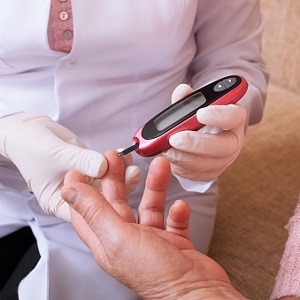
You probably already know that there are three types of diabetes: diabetes type 1, diabetes type 2 and gestational diabetes. But what, exactly, is the difference?
In all forms of diabetes, your body fails to properly process the glucose you need to obtain energy from the food you eat. It occurs when the pancreas doesn’t produce any insulin or enough insulin to allow the glucose to enter the body’s cells. High glucose levels in the blood is a symptom of type 1 diabetes, type 2 diabetes and gestational diabetes.
Type 1 diabetes more commonly appears in childhood, but can be diagnosed at any age. It’s an auto-immune disease in which the cells in the pancreas, which produce insulin, are destroyed by the immune system. People with type 1 diabetes are dependent on daily insulin injections, as their bodies produce no insulin.
People with type 2 diabetes still produce some insulin, but it’s not enough to provide the body with sufficient energy. As with type 1 diabetes, blood glucose levels start to rise. The body also becomes resistant to the insulin that’s produced. Type 2 diabetes can occur as a result of an unhealthy lifestyle, including a poor diet high in refined carbohydrates, not enough exercise, and obesity or overweight.
Gestational diabetes occurs for the first time during pregnancy and goes away again when the baby is born. In this type of diabetes, uncontrolled blood glucose levels can be as dangerous as in type 1 and type 2 diabetes. Both mother and child also have an increased risk to develop diabetes later in life.
The symptoms of both type 1 and type 2 diabetes include frequently needing to urinate, excessive thirst, constant hunger, weight loss, fatigue and blurred vision. In people with type 1 diabetes, a diabetic coma (especially in young children) often leads to the child’s diagnosis. Gestational diabetes usually doesn’t cause any obvious symptoms.
Blood glucose control can be achieved by means of lifestyle changes and medication in all three types of diabetes. Insulin injections are used by all people with type 1 diabetes, and by people with type 2 and gestational diabetes that don’t respond well enough to oral treatment and lifestyle changes.
It’s critical for people with diabetes to control their blood glucose levels, as uncontrolled blood glucose levels can lead to many serious health complications, such as blindness, heart disease, poor circulation, eye problems, kidney problems and amputations. In gestational diabetes, it may lead to birth complications, preterm delivery and other problems.
(Disclaimer: The purpose of this article is to provide general background information and not to substitute any medical diagnosis or advice received from a qualified healthcare professional.)
References:
- Diabetes.org.uk. What is diabetes? [Online] Available at: https://www.diabetes.org.uk/Guide-to-diabetes/What-is-diabetes/What-is-Type-1-diabetes/. Accessed: 30 July 2015
- MayoClinic.org. Gestational diabetes. April 2014. [Online] Available at: http://www.mayoclinic.org/diseases-conditions/gestational-diabetes/basics/definition/con-20014854. Accessed: 30 July 2015




 Publications
Publications
 Partners
Partners










